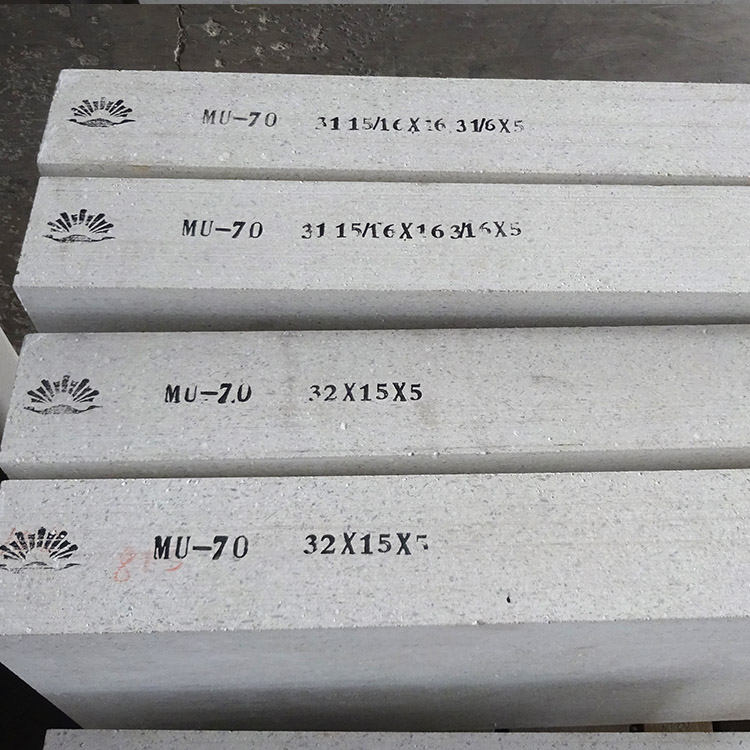
In the high-temperature industrial realm, finding the right refractory material is a perpetual challenge. The harsh conditions of high temperatures, chemical corrosion, and mechanical stress demand a material that can withstand these extremes. This is where ordinary magnesia-chrome bricks come into play as an outstanding solution.
Ordinary magnesia-chrome bricks are crafted from sintered magnesia and refractory-grade chrome ore, combined with silicates. Their physical and chemical properties are truly remarkable. For instance, in terms of strength, tests have shown that these bricks can withstand a compressive strength of up to 50 MPa, which is significantly higher compared to many other refractory materials in the market. This high strength allows them to maintain their structural integrity even under heavy loads in high-temperature environments.
When it comes to corrosion and erosion resistance, magnesia-chrome bricks have proven their mettle. In a chemical industry experiment, they showed a corrosion rate of less than 1% after being exposed to aggressive chemical substances for 100 hours at a temperature of 1500°C. This excellent anti-corrosion and anti-erosion performance make them ideal for applications where they come into contact with corrosive slags and gases.
Another notable property is their good thermal shock stability. They can endure rapid temperature changes without cracking or spalling. In a practical scenario, in a glass manufacturing furnace where the temperature fluctuates frequently, magnesia-chrome bricks can maintain their performance for an extended period, reducing the need for frequent replacements.
.jpg)
The outstanding performance of ordinary magnesia-chrome bricks makes them widely used in various high-temperature industrial fields. In the steelmaking industry, they are used in the lining of converters, electric arc furnaces, and ladles. Their high resistance to slag penetration and corrosion helps to improve the efficiency of steel production and extend the service life of the furnaces. For example, in a large steel plant, by using magnesia-chrome bricks, the furnace lining's service life was extended by 30% compared to using traditional refractory materials.
In the glass manufacturing industry, these bricks are used in the melting tanks and regenerators. Their ability to withstand high temperatures and chemical corrosion ensures the quality and stability of glass production. In a glass factory, the use of magnesia-chrome bricks reduced the number of production interruptions caused by lining damage by 40%.
They are also used in the cement industry, in the rotary kilns and preheaters. Their excellent thermal shock resistance and mechanical strength contribute to the smooth operation of the cement production process.
Compared with magnesia bricks, ordinary magnesia-chrome bricks have several advantages. A comparison table below shows the differences:
| Property | Ordinary Magnesia-Chrome Bricks | Magnesia Bricks |
|---|---|---|
| Compressive Strength | Up to 50 MPa | Around 30 MPa |
| Corrosion Resistance | Less than 1% corrosion rate in 100 hours at 1500°C | Around 3% corrosion rate in 100 hours at 1500°C |
| Thermal Shock Stability | Good | Average |
Many customers around the world have experienced the benefits of using ordinary magnesia-chrome bricks. A European steel company reported that after switching to our magnesia-chrome bricks, they not only reduced their refractory material costs by 20% but also improved their steel quality due to better furnace lining performance.
An Asian glass manufacturer also shared their positive experience. By using our magnesia-chrome bricks, they were able to increase their production capacity by 15% and improve the energy efficiency of their furnaces.

In conclusion, ordinary magnesia-chrome bricks are truly an excellent material for high-temperature industrial applications. Their outstanding physical and chemical properties, wide range of applications, and proven performance in real-world scenarios make them a top choice. Don't miss out on this opportunity to enhance your high-temperature processes. If you want to learn more about our ordinary magnesia-chrome bricks or have any questions, please contact us today!

